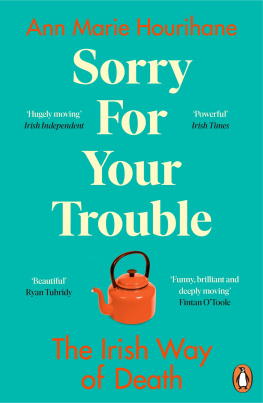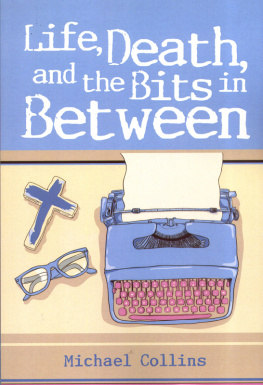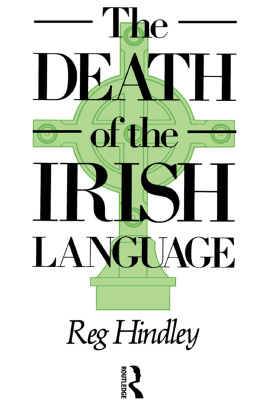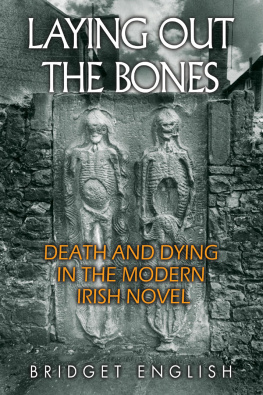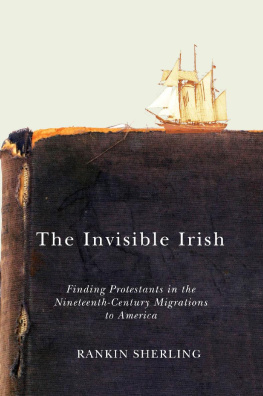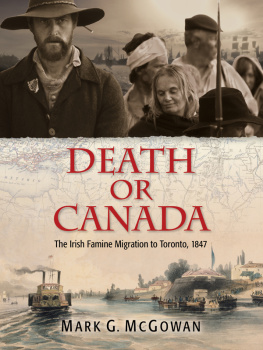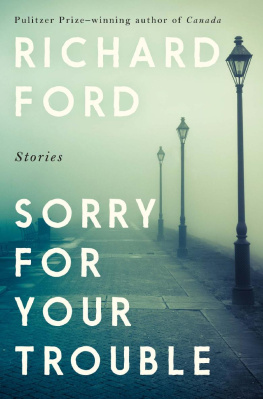Ann Marie Hourihane
SORRY FOR YOUR TROUBLE
The Irish Way of Death

PENGUIN BOOKS
UK | USA | Canada | Ireland | Australia
New Zealand | India | South Africa
Penguin Books is part of the Penguin Random House group of companies whose addresses can be found at global.penguinrandomhouse.com.

First published by Sandycove in 2021
Copyright Ann Marie Hourihane, 2021
The moral right of the author has been asserted
Cover photo Andre Devereux/Shutterstock.com
ISBN: 978-1-844-88525-1
This ebook is copyright material and must not be copied, reproduced, transferred, distributed, leased, licensed or publicly performed or used in any way except as specifically permitted in writing by the publishers, as allowed under the terms and conditions under which it was purchased or as strictly permitted by applicable copyright law. Any unauthorized distribution or use of this text may be a direct infringement of the authors and publishers rights and those responsible may be liable in law accordingly.
To Jennifer Brady and Keith Brady, who were so generous at the worst of times

1
Bernie
The call comes at 4.50 in the morning. A voice I dont recognize says, Is that Ann Marie? There have been a couple of changes in the last few hours, she says. The family has been called.
I lie there with the light on for about ten minutes, in a daze. Then I dress as if for a hike up a mountain. I make myself a cup of tea and bring it with me in the car. At the traffic lights in Rathmines I make a mistake, and a male motorist gives me a cross look, then a forgiving one.
At 5.17, Im in the hospice car park, walking towards St Catherines ward.
Bernies son, Keith, is in the hall making phone calls: Michael, shes not good. A lot of changes. Shes after changing a lot.
A nurses aide is bringing a cup of water up the corridor and into Bernies room. It turns out to be for Mick, Bernies husband.
Millie, the nurse who phoned, comes to meet me. We go to Bernies room. Immediately you can feel it: something is moving.
Mick is on the far side of the bed, at Bernies head, his arm on her pillow. Jennifer, Bernies daughter, is on the other side, just in front of me, and Keith is next to her.
Two people I dont know arrive in the room. They are Bernies sister Mary, in a white cardigan, and Marys husband, David. Jennifers phone goes off with a sudden burst of loud music.
Bernies eyes are wide open. Her breath is coming in moans, in half-articulated words. Each breath seems to be an entirely new and unknown act.
I met Bernie Brady Walsh at the beginning of her last summer. I was looking for people who were about to die and were interested in talking about it. At the end of a meeting with doctors at Our Ladys Hospice in Harolds Cross, in Dublin, one of them said that I should seek out a counsellor with whom I could discuss my own emotional reaction to what I would experience in gathering these accounts. This was good advice, which of course I did not follow.
Three patients in the hospice kindly agreed to talk to me: Eileen, Una and Bernie.
Eileen declined quickly, and decided she did not want to continue with the interviews. She wanted to be with her daughters.
Unas speech deteriorated to the point that I found it almost impossible to understand her: this was stressful for us both. She had been just about to retire from her job as a catering manager when she was diagnosed with motor neurone disease. Instead of going travelling with her husband, Phil We had such plans! she was in the hospice for respite treatment, and was planning to travel to her homeplace in County Donegal. It is all organized, she said. We had to wait and see if we could get a house up there. A house? I asked. No, a house, said Una. A house. You know, a house. A house in Donegal? I repeated. No, a house, she said. This went on and on until Una mimed the real item: it was a hoist. A hoist in Donegal. The two of us fell back, laughing with relief.
I visited her once at her house in Dublin. We were talking, Una with difficulty, about people at the hospice. She made a great effort to say something about a woman there. I couldnt understand it. Phil did. Mutton dressed as lamb? he said. Then he added, Youre some woman.
She was. Each time I met the elegant Una, whether she was in the bed or the wheelchair, she would be wearing a completely coordinated outfit, draped with graceful scarves. Her degeneration felt, she said, a bit like the tide going out. Every morning, she told me, she had to open her eyes with her fingers.
Unas suffering was extraordinary, but death is normal at the hospice. It is part of the routine of the place, just like the reduced prices for the food in the canteen, and the police officers who come in regularly for their lunch. Death is so normal there that you forget about it. Its like being in the waiting room at a railway station where the trains run to their own timetable. Nobody knows when the train will arrive it might not come for days or weeks at a time. The only certainty is that it is on its way. And so a lot of time is spent explaining the train, how it might arrive, how you will feel when it does, how your relatives might feel after you have departed on it, and so on. The people who work there know a lot about the train, but even they dont know when it will come. They only know how to stay calm in the face of its arrival.
There are ward rounds twice a week, and a meeting takes place in the team room before each of them. It involves doctors, junior doctors, nurses, pharmacists, occupational therapists everybody, really.
Around the table there are more dresses and skirts and nail varnish and long hair than youd expect in a healthcare setting. No one wears all black or even navy. Dr Lucy she insisted that I call her by her first name, so this is how I think of her is wearing kitten heels, and is visibly pregnant.
There are two new hospital juniors: David and Laura. Laura wears a seamed fitted dress and is very tall and thin. David is handsome in cords. He is talking to a new young pharmacist who has long fair hair and is wearing a peasant blouse.
At this meeting there is talk of some patients who have intellectual disabilities. When I first visited, there was a man here with Downs syndrome who was dying of cancer. He surrounded himself with his music tapes and a lot of chocolate, and seemed fairly content, although he did say, when Dr Lucy asked him, that his bum hurt. When I next visited, he was gone.
Another patient, Caitrona, would always distract herself when Dr Lucy tried to speak to her about what was happening. (Caitrona is a pseudonym; Im using pseudonyms for all the patients, family members and friends discussed in the team meeting and on ward rounds.) She would talk about her jewellery. She had met Prince Charles when he had visited the hospice, and had the photos to prove it.
One day she said: Can people die of this?
Some people do.
Its not fair.
Caitrona died with all her family around her. As the end approached, she would open her eyes and see them there and, Dr Lucy says, was quite chuffed at the end that all the family were around.
Now staff are worried about Caitronas devoted friend, Breda, who is bereft at her loss.

